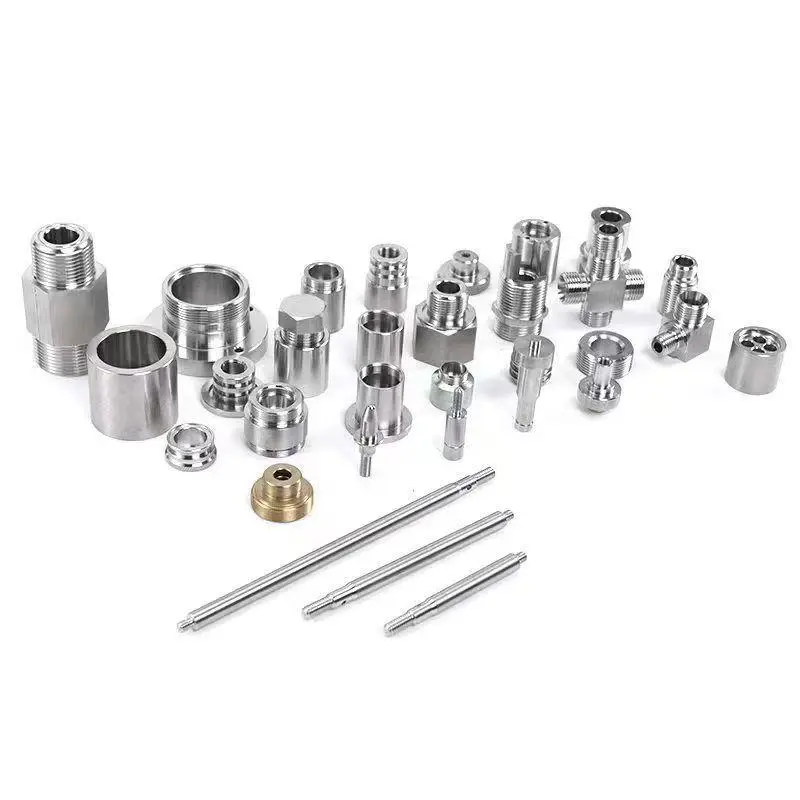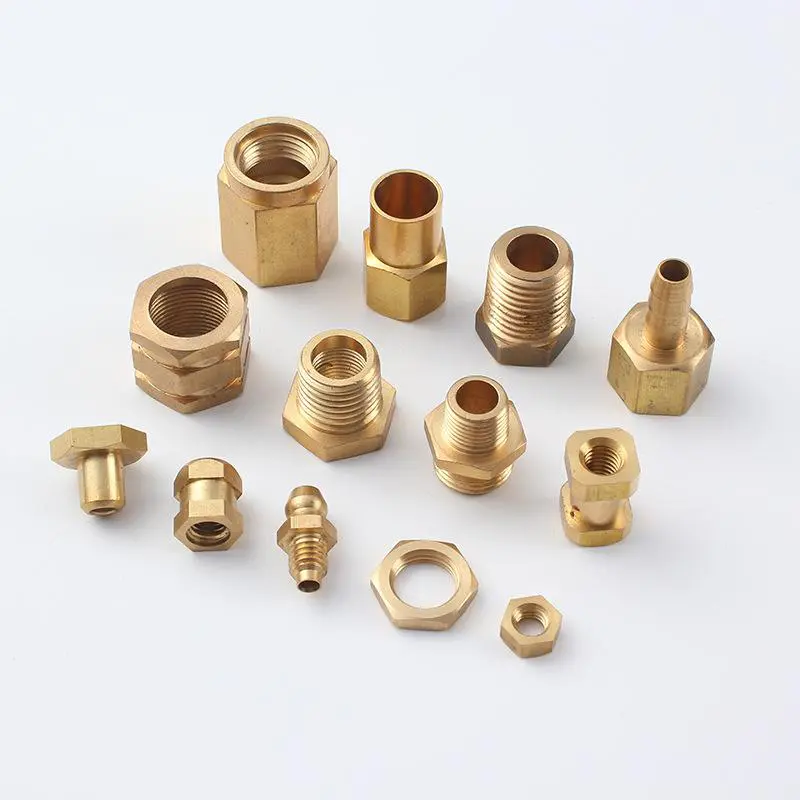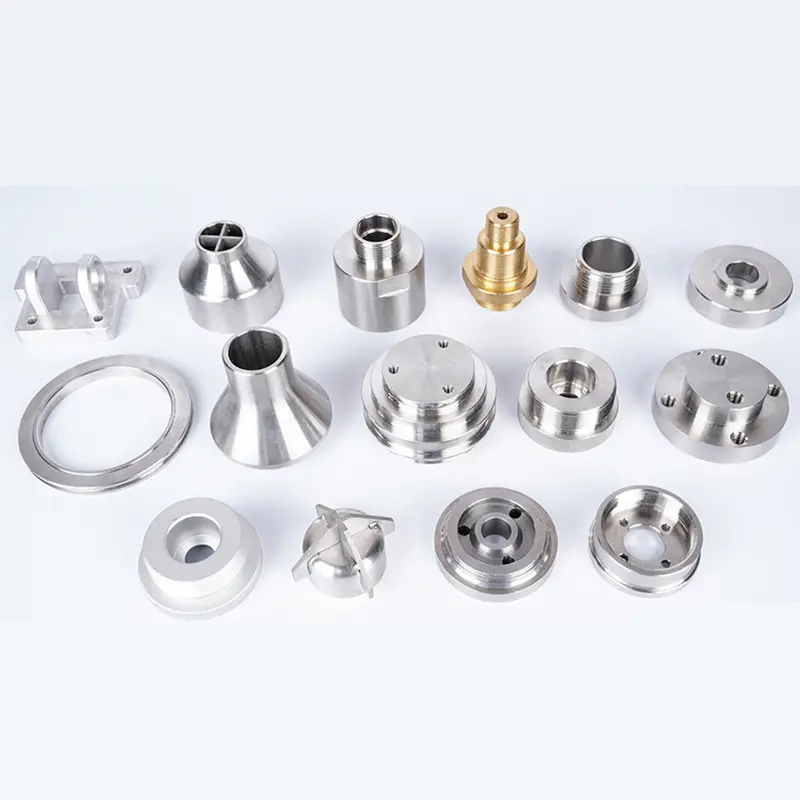Understanding Machined Parts: Essential Insights for Manufacturing Success
Published Time:
2025-09-11
Machined parts are a cornerstone of the manufacturing sector, particularly in the realm of mechanical hardware and precision component fabrication. These parts are created through various machining processes, which involve the removal of material from a workpiece to achieve desired shapes, sizes, and specifications. Understanding the intricacies of machined parts is essential for any organization involved in manufacturing and mechanical processing.
The production of machined parts typically involves several techniques, including turning, milling, drilling, and grinding. Each method has its own set of tools and machinery and is chosen based on the specific requirements of the part being produced. For instance, turning is particularly useful for creating cylindrical shapes, while milling is ideal for producing complex geometries. By selecting the appropriate machining technique, manufacturers can achieve high levels of accuracy and surface finish.
One of the key advantages of utilizing machined parts is their versatility. They can be fabricated from various materials, including metals, plastics, and composites, making them suitable for a wide range of applications. These components are commonly found in industries such as automotive, aerospace, electronics, and medical devices. Their reliability and precision make them essential for ensuring the functionality of complex machinery and equipment.
Moreover, the use of advanced computer numerical control (CNC) technology has revolutionized the production of machined parts. CNC machining allows for automated and highly precise manufacturing processes, significantly reducing lead times and enhancing productivity. With the ability to produce intricate designs with minimal human intervention, CNC machining has become a preferred choice for manufacturers looking to optimize efficiency.
Quality control is another critical aspect of machined parts production. Manufacturers must adhere to strict quality standards to ensure that each component meets the required specifications. This often involves rigorous testing and inspection processes to identify any defects or inconsistencies. By implementing robust quality assurance measures, companies can minimize the risk of costly errors and maintain their reputation in the marketplace.
In conclusion, machined parts are fundamental to the success of the manufacturing industry. Their precision, versatility, and reliability make them indispensable in a variety of applications. As technology continues to advance, the methods used to produce these components will evolve, leading to even greater efficiencies and capabilities. Understanding the importance of machined parts and the processes involved in their creation is crucial for any organization aiming to thrive in today's competitive manufacturing landscape.
The production of machined parts typically involves several techniques, including turning, milling, drilling, and grinding. Each method has its own set of tools and machinery and is chosen based on the specific requirements of the part being produced. For instance, turning is particularly useful for creating cylindrical shapes, while milling is ideal for producing complex geometries. By selecting the appropriate machining technique, manufacturers can achieve high levels of accuracy and surface finish.
One of the key advantages of utilizing machined parts is their versatility. They can be fabricated from various materials, including metals, plastics, and composites, making them suitable for a wide range of applications. These components are commonly found in industries such as automotive, aerospace, electronics, and medical devices. Their reliability and precision make them essential for ensuring the functionality of complex machinery and equipment.
Moreover, the use of advanced computer numerical control (CNC) technology has revolutionized the production of machined parts. CNC machining allows for automated and highly precise manufacturing processes, significantly reducing lead times and enhancing productivity. With the ability to produce intricate designs with minimal human intervention, CNC machining has become a preferred choice for manufacturers looking to optimize efficiency.
Quality control is another critical aspect of machined parts production. Manufacturers must adhere to strict quality standards to ensure that each component meets the required specifications. This often involves rigorous testing and inspection processes to identify any defects or inconsistencies. By implementing robust quality assurance measures, companies can minimize the risk of costly errors and maintain their reputation in the marketplace.
In conclusion, machined parts are fundamental to the success of the manufacturing industry. Their precision, versatility, and reliability make them indispensable in a variety of applications. As technology continues to advance, the methods used to produce these components will evolve, leading to even greater efficiencies and capabilities. Understanding the importance of machined parts and the processes involved in their creation is crucial for any organization aiming to thrive in today's competitive manufacturing landscape.
NewsCenter
Beijing Pafinal Precision Machinery Co., Ltd.
Email:sales@pafinal.com

Address: No. 239 Huanhe South Road, Tianjin Pilot Free Trade Zone (Airport Economic Zone), Tianjin
中企跨境-全域组件
制作前进入CSS配置样式
sales@pafinal.com:
Whatsapp:
在线客服添加返回顶部
图片alt标题设置: PAFINAL
表单验证提示文本: Content cannot be empty!
循环体没有内容时: Sorry,no matching items were found.
CSS / JS 文件放置地




 2025-09-12
2025-09-12


